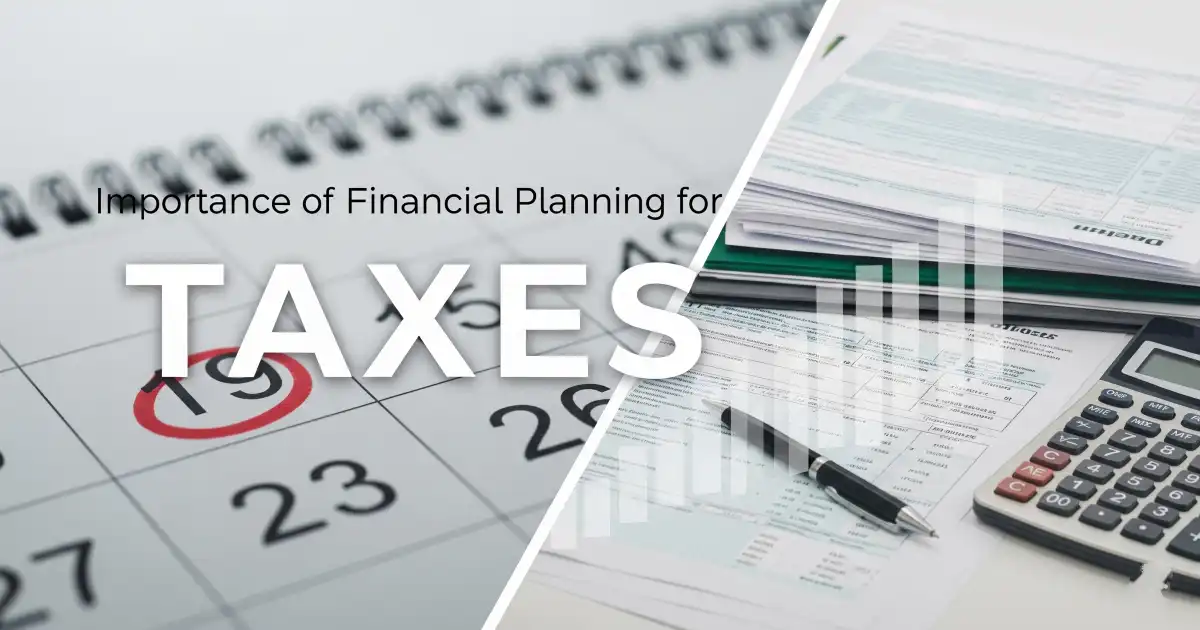Many people think of taxes only when filing season arrives, but smart tax planning should be a year-round priority. Financial planning for taxes is not just about reducing the amount you owe; it is about managing your money more effectively, keeping more of your earnings, and preparing for future financial goals. By understanding the importance of financial planning for taxes, individuals and businesses can make better decisions that improve overall financial health.
What Is Tax Planning?
Tax planning is the process of organizing finances in a way that minimizes tax liability within the rules of the law. It involves making strategic choices about investments, expenses, retirement savings, and deductions so that you pay only what you owe and not more. Proper tax planning ensures compliance with government regulations while also helping you keep as much of your income as possible.
Why Financial Planning for Taxes Matters
- Reduces tax liability: Effective planning helps you identify deductions, credits, and exemptions that lower your taxable income.
- Increases savings: The money saved on taxes can be directed toward investments, emergency funds, or retirement accounts.
- Ensures compliance: Staying organized and informed reduces the risk of penalties and legal issues.
- Supports long-term goals: With proper tax planning, you can align your finances with retirement, education, or business expansion goals.
Common Strategies in Tax Planning
There are several methods individuals and businesses can use to plan taxes effectively:
- Maximizing deductions: Claiming allowable expenses such as medical costs, education fees, or business-related expenses reduces taxable income.
- Using tax credits: Credits like education credits or energy-efficient home credits directly reduce the amount of tax you owe.
- Retirement contributions: Contributing to retirement accounts often lowers taxable income while preparing for future needs.
- Investment planning: Choosing tax-efficient investment options can reduce capital gains tax and optimize returns.
The Role of Tax Planning in Personal Finance
For individuals, tax planning is not just about filing correctly—it directly impacts day-to-day financial decisions. For example, deciding whether to buy or rent a house, invest in stocks, or contribute to a retirement fund often has tax implications. Proper planning ensures you make informed choices that balance immediate needs with long-term benefits.
The Role of Tax Planning in Business
For businesses, tax planning is equally important. Strategic tax management can improve cash flow, reduce expenses, and support growth. Businesses that fail to plan for taxes often face unexpected bills that disrupt operations. On the other hand, businesses that actively plan are better equipped to reinvest profits, pay employees fairly, and expand sustainably.
Benefits of Early and Consistent Planning
One of the biggest mistakes people make is waiting until the last minute to think about taxes. Early and consistent tax planning allows you to adjust income, expenses, and investments throughout the year for maximum benefit. This reduces stress during tax season and ensures you are always financially prepared.
Tips for Better Tax Planning
- Keep detailed records of expenses, receipts, and financial documents.
- Review your income and deductions quarterly, not just yearly.
- Consult a tax advisor or financial planner for professional guidance.
- Stay updated with tax law changes that may affect your situation.
- Balance short-term savings with long-term financial goals.
Conclusion
Understanding the importance of financial planning for taxes is essential for anyone who wants to protect wealth, reduce stress, and achieve financial stability. Whether you are an individual managing household finances or a business owner planning for growth, smart tax strategies can make a significant difference. By planning ahead, using available deductions and credits, and staying organized, you can turn tax season from a burden into an opportunity to strengthen your financial future.



